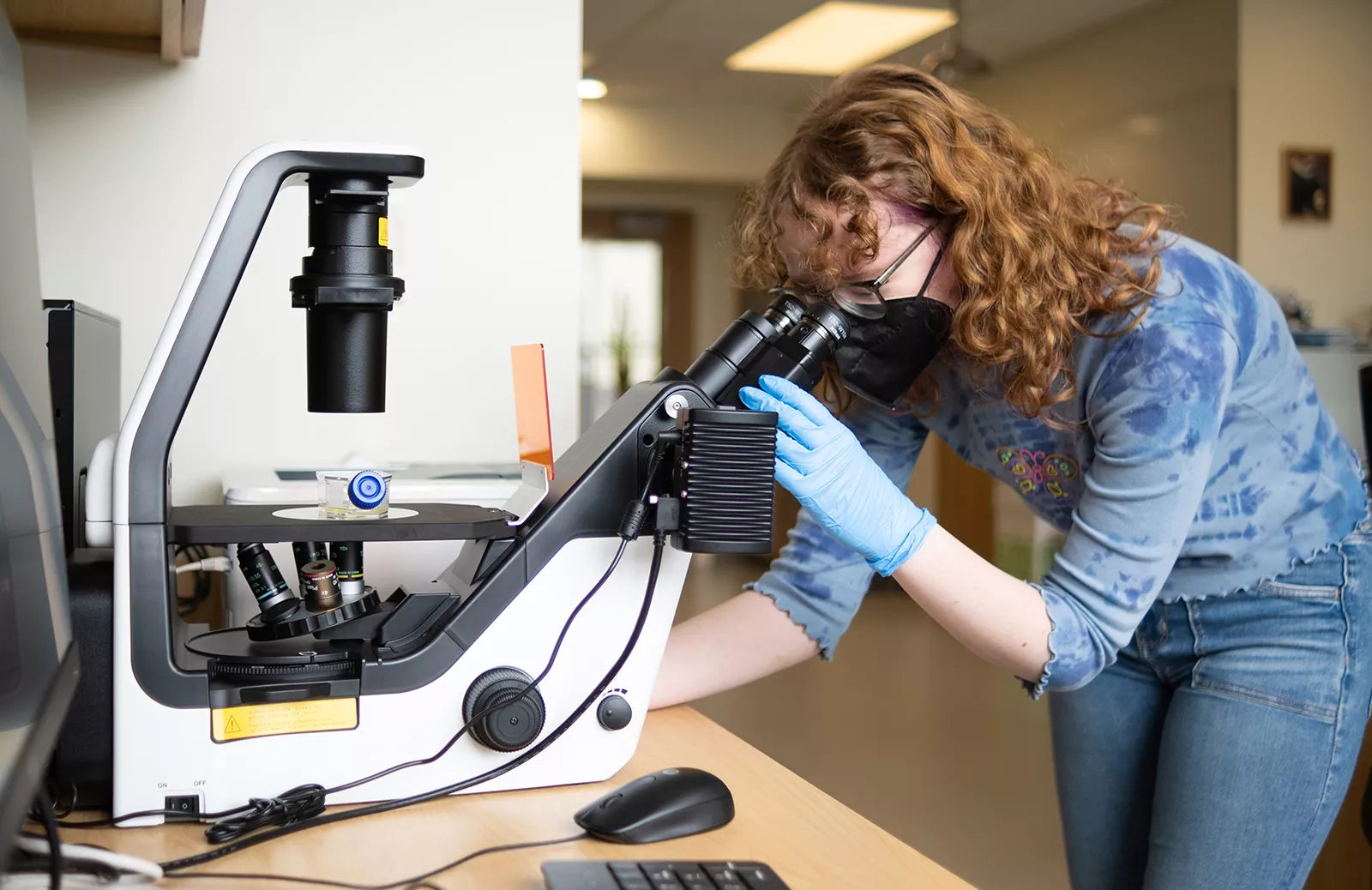
Newly admitted students interested in taking part in Bryn Mawr’s Stem in the Liberal Arts (STEMLA) Fellows program this summer have until May 15 to apply to be part of the program.
STEMLA was launched last summer and is a free interdisciplinary college-transition and mentorship program designed for limited income undergraduate students that have a stated interest in STEM.
The College has received a nearly $1.5 million grant from the National Science Foundation to fund the program, which can serve as many as 20 new students each year, and brought Kelsey Obringer on board at the start of this semester as the STEMLA coordinator.
“At the core of this program is fostering a sense of belonging in STEM fields through mentorship, exploration, and experimentation,” says Obringer. “These things, especially mentorship, were essential to my own college experience, so I am excited to be in a position where I can facilitate that.”
Caelin Foley '25 is among the initial group of fellows.
“I think often as first-generation or low-income students, there is a sense of anxiety about entering an educational experience where you're no longer surrounded by students from similar demographics and you are grappling with your own identities while also trying to succeed academically,” says Foley. “The STEMLA program addressed all of those issues.”
This year’s STEMLA fellows will be the first to take part in an in-person summer program (assuming COVID policies remain relatively unchanged).
The fellows spend four weeks on campus during the summer prior to their first year. During that time, they participate in three courses for which they receive 1.5 credits. In addition to Quantitative Reasoning in STEM, fellows this year will take Geology of Energy and Extraction and Oil, Coal, Nuclear: Narrative Afterlives. Each student receives a stipend for their time on campus and a laptop.
The program continues in the first year when each fellow is matched with a faculty member and enrolled in a course that focuses on STEM career exploration and quantitative, graphical analysis, and scientific writing skills. There is also funding for fellows to attend conferences early in their academic career without the pressure of presenting and for some fellows to undertake paid lab work.
‘We continue to provide faculty mentorship and other opportunities during the sophomore year and throughout a fellow's time at Bryn Mawr and the hope is that by their junior year they’re right where they need to be in terms of doing research and understanding the options available in each discipline,” says Obringer.
Biology’s Jen Skirkanich serves as the program’s faculty director and has been a part of the program since its inception.
“The STEMLA Program uplifts each fellow’s personal interest in STEM as a valuable driver of success that allows them to grow and thrive in their chosen field,” says Skirkanich. “The program also provides mentorship, research opportunities, and a supportive STEM community experience that empowers each fellow to forge their own pathway through a STEM major at Bryn Mawr, and beyond.”